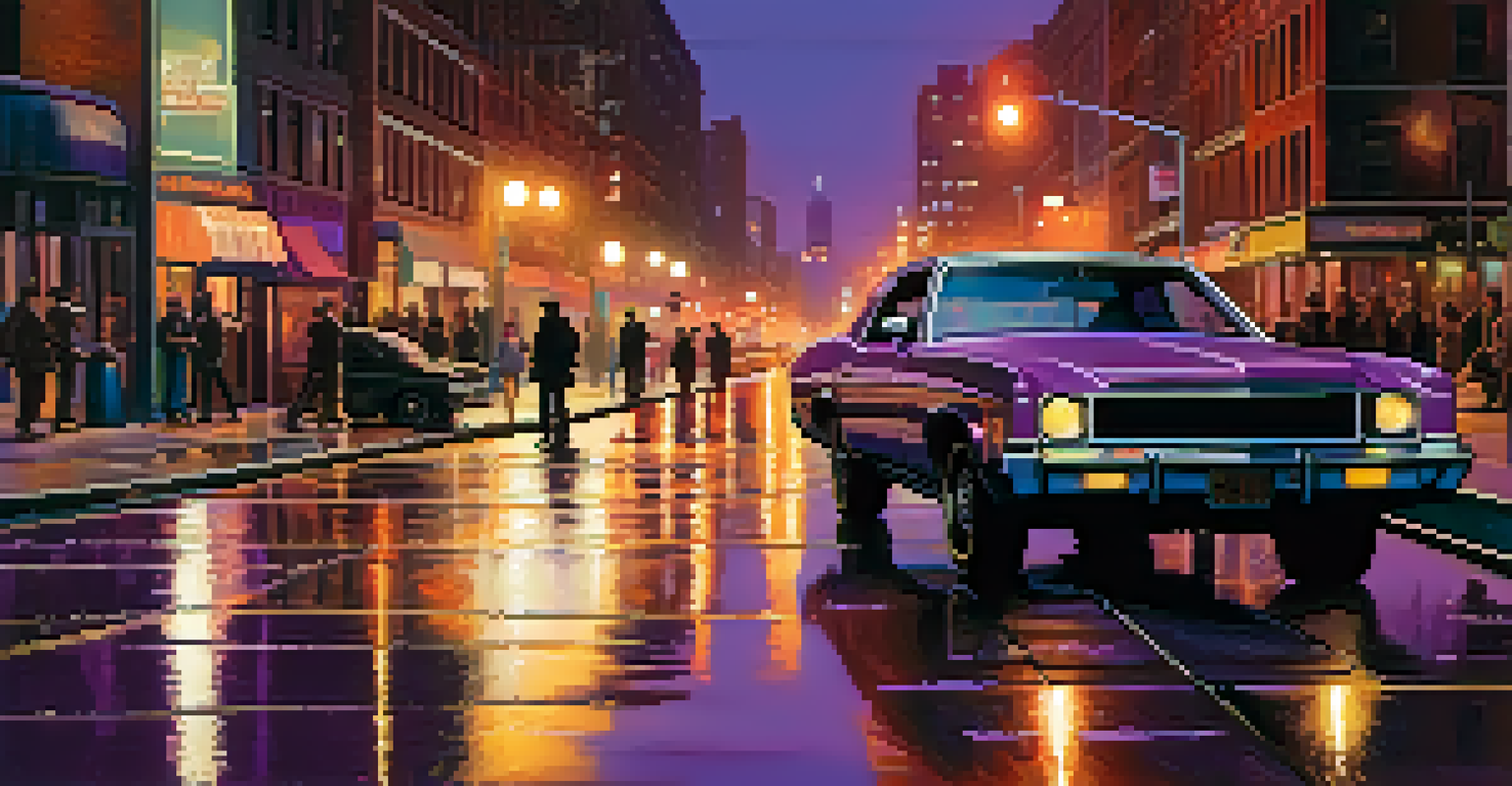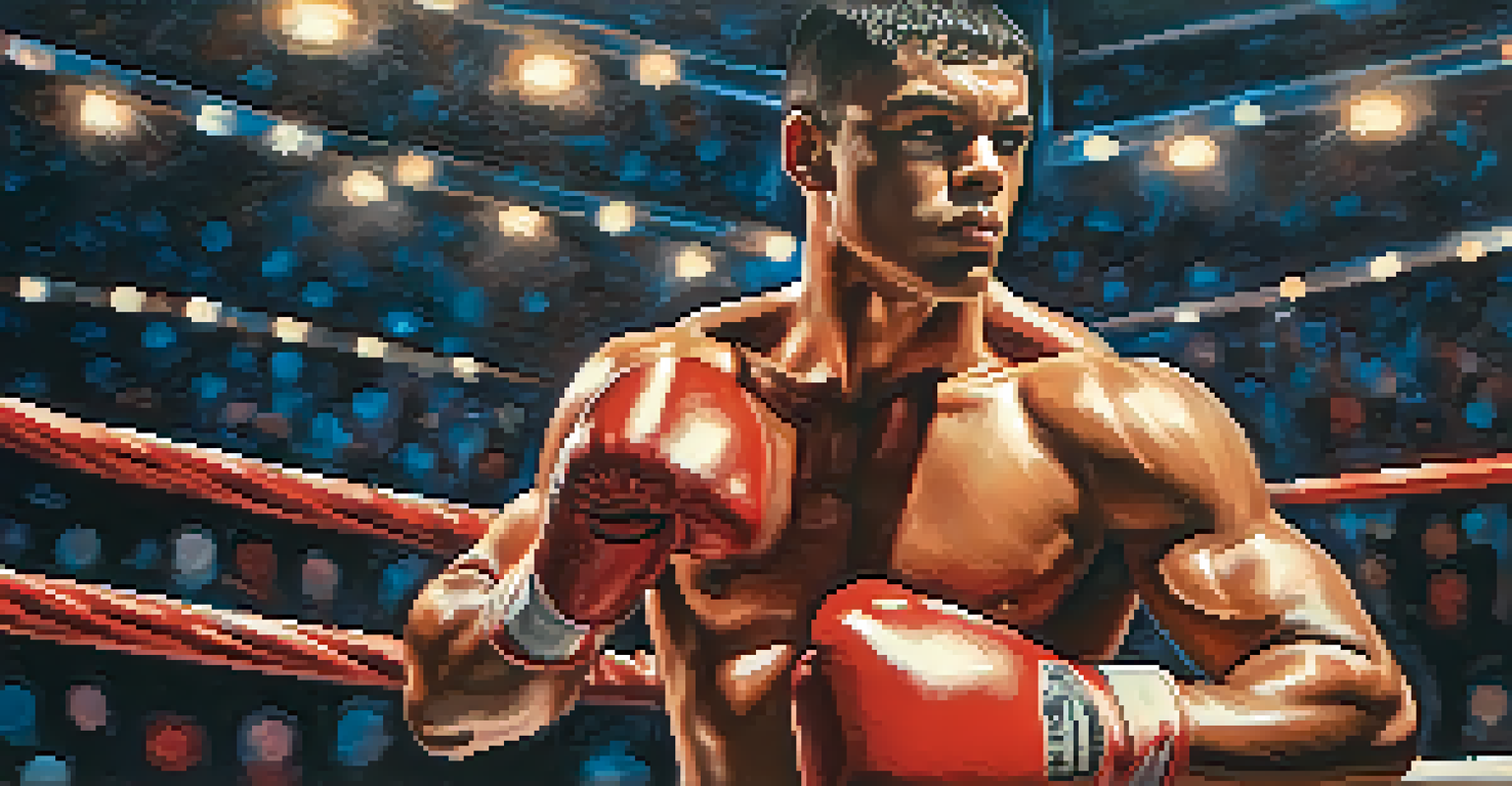Martin Scorsese: The Storyteller Behind American Cinema

Early Life: The Roots of a Filmmaking Genius
Martin Scorsese was born on November 17, 1942, in Queens, New York. Growing up in a Sicilian-American family, he was exposed to storytelling from a young age, especially through his grandmother's tales. This rich cultural background laid the foundation for his cinematic voice, which often reflects themes of identity and family.
Cinema is a matter of what's in the frame and what's out.
Scorsese's early life was marked by a love for film, influenced by classic directors like John Ford and Alfred Hitchcock. Despite his initial aspirations of becoming a priest, he pursued film studies at NYU, where he honed his craft. This transition marked the beginning of a journey that would redefine American cinema.
His student projects showcased a unique storytelling style, blending personal experiences with broader cultural narratives. These formative years were crucial in shaping his vision, leading him to explore the complexities of human nature through film.
Breakthrough Film: 'Mean Streets' and Its Impact
'Mean Streets,' released in 1973, was Scorsese's first major film that garnered critical acclaim. The story revolves around small-time mobsters in New York City, reflecting Scorsese's own experiences and the gritty reality of urban life. Its innovative storytelling and raw energy captivated audiences and laid the groundwork for his future work.

The film introduced iconic elements such as the use of music to enhance emotional depth, a signature technique that Scorsese would perfect in later projects. It also established the collaboration between Scorsese and actor Robert De Niro, which would become a hallmark of his career. This partnership brought to life complex characters that resonated with viewers.
Scorsese's Cultural Influence
Martin Scorsese's films explore themes of identity and morality, reflecting his Sicilian-American roots and impacting both audiences and aspiring filmmakers.
Scorsese's ability to blend personal narrative with broader social themes in 'Mean Streets' set the stage for a new era in American filmmaking. It marked the beginning of his exploration into morality, redemption, and the darker sides of human nature.
Iconic Collaborations: Scorsese and De Niro
One of the most significant aspects of Scorsese's career has been his collaboration with Robert De Niro. Together, they created some of the most memorable characters in film history, starting with 'Taxi Driver' in 1976. This film, which follows a mentally unstable Vietnam War veteran, showcased Scorsese's talent for portraying psychological depth.
The most personal things are the most universal.
Their partnership continued with films like 'Raging Bull' and 'Goodfellas,' each adding layers to their creative synergy. In 'Raging Bull,' De Niro's transformation into boxer Jake LaMotta exemplified Scorsese's commitment to authenticity and character-driven storytelling. This dedication to character development is a hallmark of Scorsese's filmmaking style.
Through these collaborations, Scorsese and De Niro not only pushed the boundaries of cinema but also explored themes of violence, ambition, and the human condition. Their work together has left an indelible mark on American cinema, influencing countless filmmakers.
Exploring Themes: Identity, Violence, and Morality
Scorsese's films often delve into the complexities of identity, particularly within the context of masculinity and cultural heritage. He examines the struggles of individuals navigating their roles in society, as seen in films like 'The Irishman' and 'Casino.' These narratives are deeply rooted in his own experiences and observations, making them relatable to audiences.
Violence is another recurring theme in Scorsese's work, presented not just as a spectacle but as a reflection of deeper societal issues. In 'Goodfellas,' for instance, violence is intertwined with loyalty and betrayal, challenging viewers to confront uncomfortable truths. Scorsese's nuanced approach encourages audiences to question the morality of his characters.
Innovative Storytelling Techniques
Scorsese is known for his unique filmmaking techniques, such as integrating music and innovative editing styles, which enhance the emotional depth of his narratives.
Ultimately, Scorsese's exploration of these themes elevates his films beyond mere entertainment. They invite viewers to reflect on their own lives and the world around them, making his storytelling both impactful and thought-provoking.
Innovative Techniques: Pioneering the Art of Filmmaking
Throughout his career, Scorsese has pushed the boundaries of traditional filmmaking through innovative techniques. His use of editing styles, such as jump cuts and slow motion, create a unique rhythm that enhances the storytelling experience. For instance, the iconic tracking shots in 'Goodfellas' immerse viewers in the characters' world, making them feel like part of the action.
Additionally, Scorsese's integration of music into his films is nothing short of revolutionary. He carefully selects songs that resonate with the narrative, using them to evoke emotions and set the tone. This attention to detail not only enriches the viewing experience but also highlights the cultural context of the stories he tells.
By continually experimenting with visual and auditory elements, Scorsese has influenced a generation of filmmakers. His commitment to innovation reflects his belief that cinema should evolve, pushing the envelope to engage and inspire audiences.
The Legacy: Awards and Cultural Influence
Martin Scorsese's impact on cinema has been recognized through numerous awards, including an Academy Award for Best Director for 'The Departed.' This recognition not only validated his work but also solidified his status as a master storyteller. His films have garnered critical acclaim and commercial success, making him a household name.
Beyond the accolades, Scorsese's influence extends to aspiring filmmakers around the world. His dedication to storytelling and character development serves as a blueprint for those looking to make their mark in the industry. Many contemporary directors cite him as a major inspiration, showing the lasting effect of his work.
Ongoing Legacy and Future Projects
As of 2023, Scorsese continues to innovate in filmmaking and television, promising to deliver thought-provoking stories that challenge societal norms.
Scorsese's films continue to spark conversations about culture, morality, and the human experience. As he explores new narratives and collaborates with emerging artists, his legacy is sure to shape the future of cinema for generations to come.
Looking Ahead: Scorsese's Future Projects
As of 2023, Scorsese remains an active force in the film industry, with several exciting projects on the horizon. His commitment to storytelling is evident in upcoming films that tackle contemporary issues while staying true to his cinematic roots. Fans eagerly await the release of 'Killers of the Flower Moon,' which promises to be a powerful exploration of history and injustice.
In addition to feature films, Scorsese is also venturing into television, showcasing his versatility as a storyteller. His involvement in series like 'Boardwalk Empire' and 'Vinyl' demonstrates his ability to adapt his filmmaking style to different formats. This expansion into television allows him to reach a broader audience while continuing to explore complex narratives.

Scorsese's relentless passion for filmmaking ensures that he will continue to innovate and inspire. As he embarks on new projects, audiences can look forward to more thought-provoking stories that reflect the human condition and challenge societal norms.